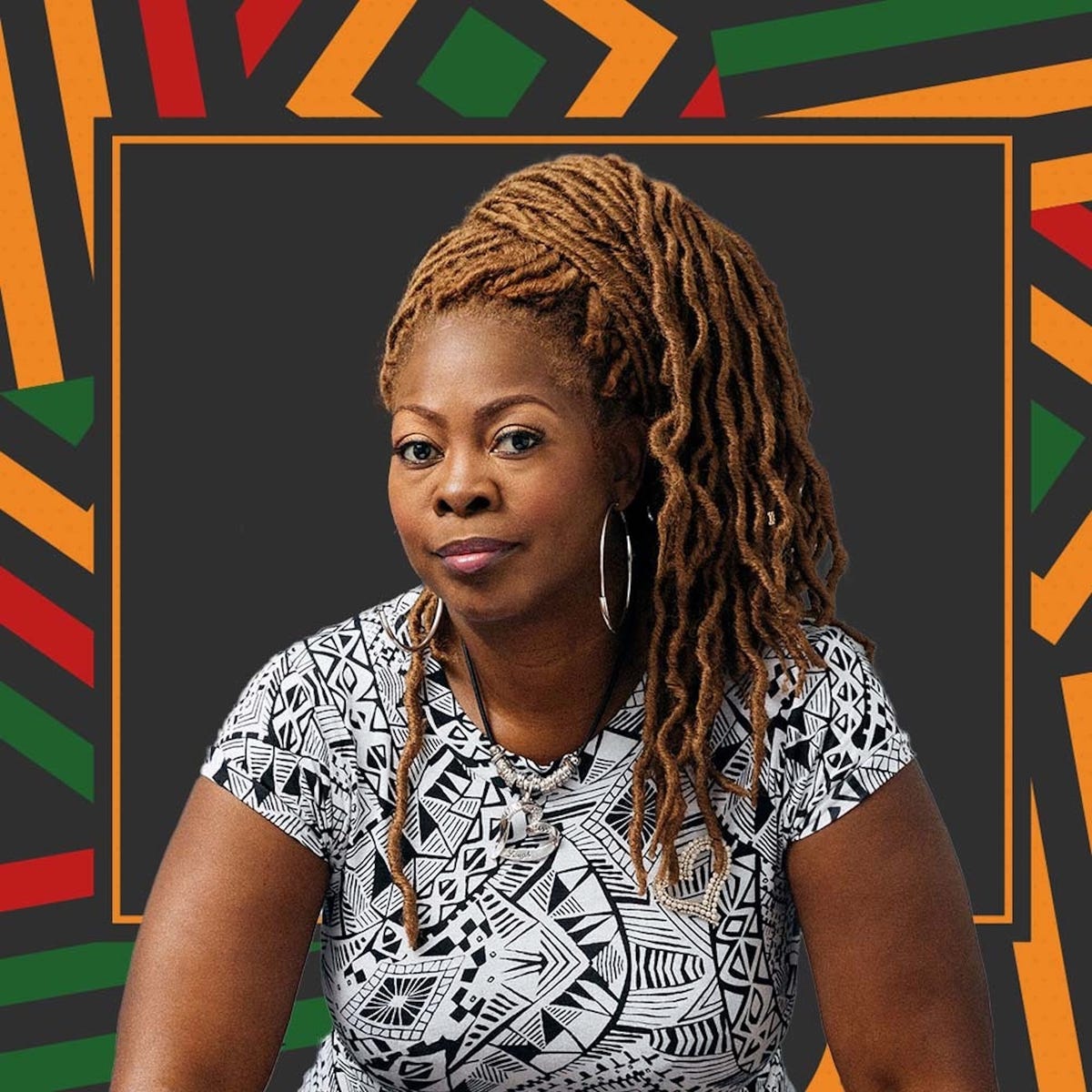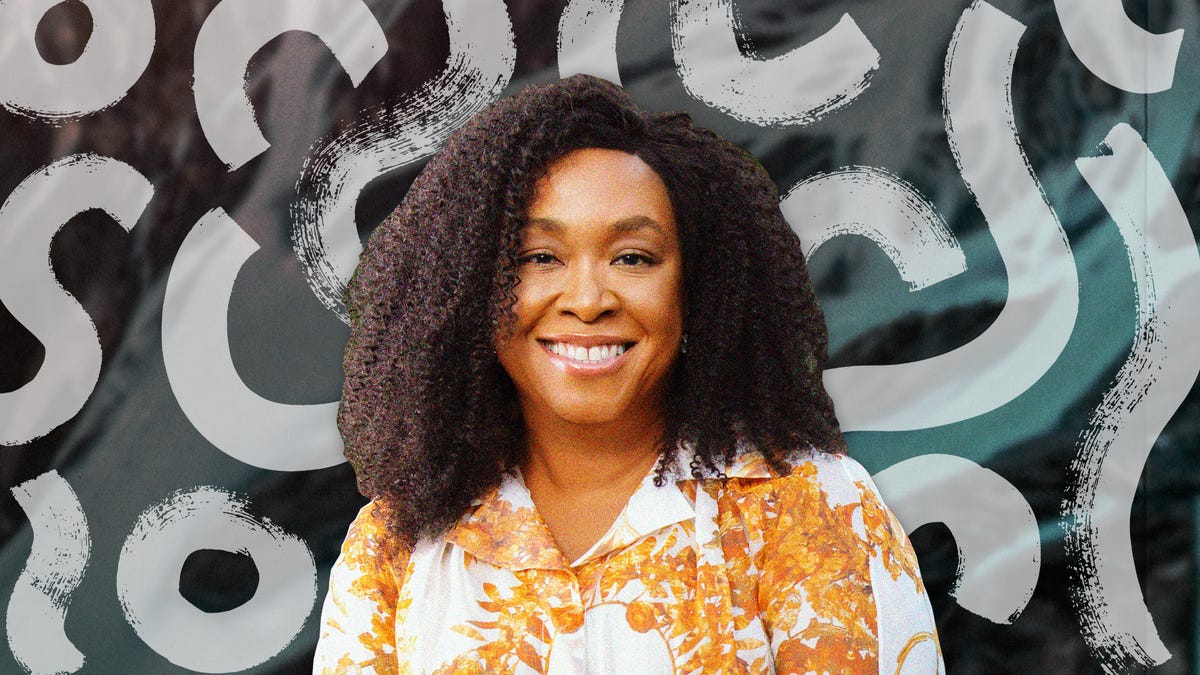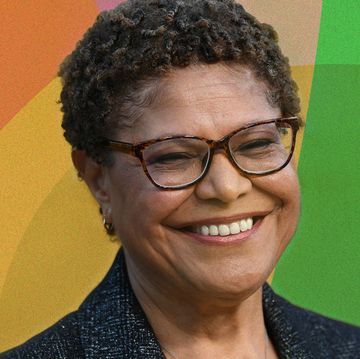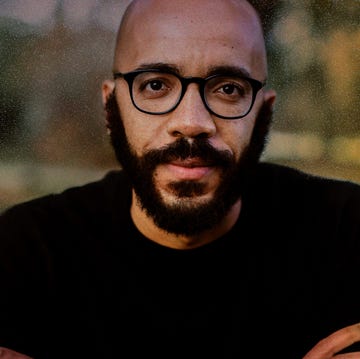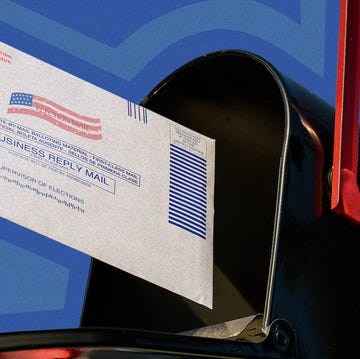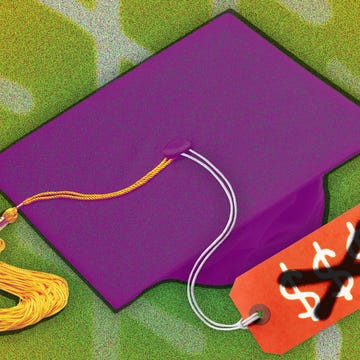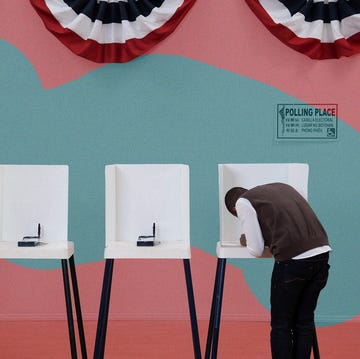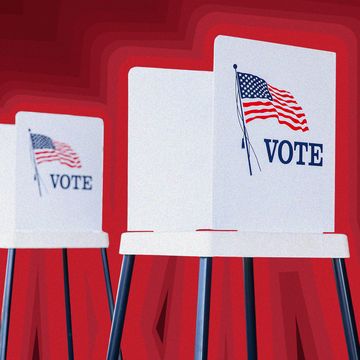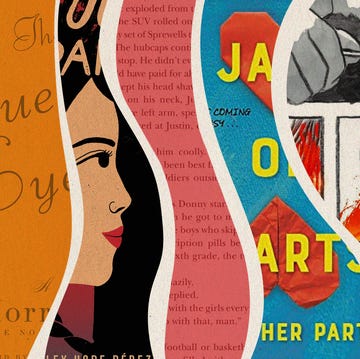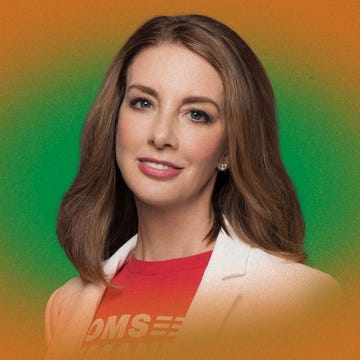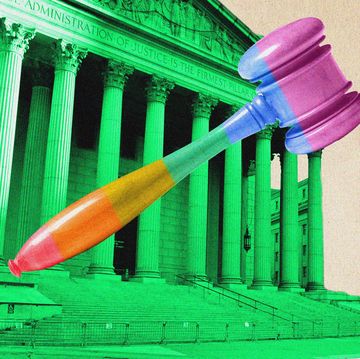Celebrating the contributions of Black people in America is an important part of our country's story. But too often reflections on Black History Month focus on a few iconic figures, and not the myriad of unsung heroes who've influenced our lives. This year, we're highlighting some of the women making Black History NOW, from a chief economist and a woman fighting to expand voting rights, to a trailblazing Attorney General working to protect the rights of others, this group of groundbreaking women are making the world better today.
In 2016, LaTosha Brown co-founded Black Voters Matter and the Black Voters Matter Fund with fellow activist Cliff Albright, but in all actuality, the organization and fund were 25 years in the making.
"We had been in a conversation with each other around this question of, ‘What is it going to take to help Black people get independent power?’" Brown tells Shondaland. "We worked on campaigns together, from presidential campaigns to the local campaigns. We would create businesses and business models to help for that same purpose. And so what I would say is that the formation of Black Voters Matter is simply a culmination of all the work we had done individually and collectively over the last two and a half decades."
Over the last couple of years, Brown’s work with the organization has left an indelible mark on the South. In 2017, the organization’s work helped then-Democratic nominee Doug Jones defeat Roy Moore in Alabama’s Senate race, though he went on to lose re-election in the reliably Republican district in 2020. And this year, Black Voters Matter, alongside Stacey Abrams’s Fair Fight and Nse Ufot’s The New Georgia Project, have been credited with helping to turn Georgia blue for the first time in 28 years.
But to get a better understanding of Brown’s work, you have to start with her upbringing.
Early days
When Brown was a student at Selma High School, her yearbook superlative from her fellow classmates said she was most likely to succeed. But little did she know that a few decades later, she’d succeed in empowering voters and flipping states from red to blue.
Growing up in Alabama, Brown says she was always known for sticking up for the underdog, whether it was calling out bullies or speaking out about injustice.
"I always had a measure of courage. Even when I was scared, I would take on a fight,” Brown says. “I remember I was the little prissy girl that would jump in when I saw the boys messing with the boy they thought was weak. I would jump in the fight."
One of Brown’s biggest influences in her life was her grandmother, whom she refers to as her "soulmate." Brown’s parents separated when she was a young child, and her mother then moved Brown and her siblings from New Jersey to Mobile, Alabama to live with her parents.
"My mama was there, but I'm a grandmama's baby. My grandmother was my soulmate. People have different soulmates and they think their soulmate is their [romantic] partner and, you know, that would probably be nice, but my soulmate is my grandmother," Brown says. "She was born in 1910. So she would've been 111 if she was still living. She was like the quintessential grandmama. I don't even know if they make them like that no more."
Like many Black families in the South, Brown says hers was working class, but even though they didn’t have a lot of money, they were stable and didn’t consider themselves poor, which speaks to the resilience of Black families both back then, and today.
According to Brown, as a child, she was also always fascinated by the notion of power, and to this day, it’s been the framework she’s lived by. From questioning her grandmother about something as mundane as who owned the K-Mart in their town or who was in charge of the church, Brown always knew the power of ownership.
"I always was intrigued and wanted to know who had the power to make decisions, who was the person that was the leader,” she says. "I've always had this sense of justice and so as I've gotten older I've realized those two things are connected. It’s something about this notion of power, and how people use their power."
Though her high school classmates deemed her "most likely to succeed," Brown initially had her heart set on becoming a jazz singer.
"In school, I was known as a singer. I was known as somebody that would stand up for things. And in school, I was known to lead," Brown recalls. "I would lead and take on stuff that even had barriers. I would go and enter in a contest with all the white girls even though I knew I was a chocolate girl, I would walk out like I was the cutest thing ever created."
Even though singing is still one of her passions, these days Brown’s success comes in a different form helping people flex their power at the ballot box. Over the past few years, she’s helped to register over a million new voters while also combating voter suppression efforts across the South.
Black votes, Black lives
On the day of our conversation, Brown was taking a much-needed break and relaxing in the sun on a working vacation. While most people definitely wouldn’t want to work during a vacation, Brown’s infectious spirit and her commitment to the cause is something that doesn’t waiver. And to see tangible results of her organization’s hard work is something that brings a smile to her face.
With Black Voters Matter, Brown and Albright set forth to create an organization that would help Black people build power, the same power she often wondered about as a kid in Alabama.
"We [did that] by creating a vehicle that would help build capacity to Black-lead organizations, by investing money, by being a stock partner, to being a strategic partner, just the same kind of resources that go into the building of the power of a party," Brown says. And that’s the exact purpose of both Black Voters Matter and the Black Voters Matter Fund. You could say that Brown’s own loss inspired her to create such an organization.
In 1998, Brown made her first bid for political office when she ran for the State Board of Education in Alabama’s 5th district. Brown was up against Democrat incumbent Willie Paul, and it took a week for the winner to be announced, with Brown losing by a tad bit over 200 votes. Miraculously, 800 ballots were later found, but according to a call she received from the state’s Democratic Party, it was too late to do anything besides file a lawsuit, which she could not afford to do.
Now decades later, Brown has made it her mission to help end voter suppression. And after helping turn out a record-number of voters in Georgia, she’s just getting started.
"I believe that Black people have enough power to flip the whole country. I think that Black people have enough power to flip the world. I think that Black people have enough power to actually make a transformation in the universe, and I am saying that from every fiber in my heart,” Brown declares. “I'm not saying that just because it sounds cliché-ist — I believe that's who we are. I'm doing that, and my belief is backed up by a whole lot of receipts. My belief is backed up by a long history of how Black people have changed their trajectory, not only of our local communities.”
Despite her ardent belief in Black people to change the world, Brown knows it’s a harrowing task. "Now does that mean that I think it's going to be easy? No," she adds. "That's not what I mean. But even the work we did in Georgia, it wasn't about flipping the state. It's about Black people standing in their power. And then when we stand in our power, things change."
Next up for Brown and her organization is Alabama. Even though the country is still adjusting to a new president, historic vice president, and new Senate leadership, Brown is already looking toward making some changes happen in her home state.
"Do I, as a woman from Alabama, believe that we could take Alabama? Absolutely,” she says. “Alabama and Louisiana and Texas and Florida. I think that if democracy is to be, there's no way that democracy will be even created without actually engaging and empowering the most progressive voters in this country, which are Black voters. And the majority of us live in the South. So there's no road to that without coming through the South, without uprooting where the very foundation of racism has rooted itself. This is ground zero.”
Even with states still trying to enact voter suppression tactics — after this past election cycle, at least 26 states have introduced legislation that would make voting harder — Brown is determined to fight against the tactics for citizens who have the right to vote and to also help people like former inmates regain their right to vote.
"You don’t have the right to mistreat someone because they've been in prison,” she says of laws that don’t allow inmates and formerly incarcerated people to vote. “We have to really be able to eliminate that and, quite frankly, disenfranchisement is disenfranchisement that all of us have, regardless of what we've done, regardless of who we are, regardless of our beliefs, every single person has agency and should have agency over what decisions govern them.”
The new administration
As Joe Biden and Kamala Harris get settled into their new roles at the White House, their first 100 days will be highly scrutinized, especially since the first couple of weeks have so far included reversing Donald Trump’s executive orders and attempting to get Covid under control. But Brown also has her own wishlist that she feels should be a priority for the Biden-Harris administration.
"When the Voting Rights Act of 1965 was passed, it was compromised, and so it did not go far enough. The first order of business should actually be a massive re-haul of the voting rights system to be able to ensure and protect the right to vote in this country,” Brown argues. “The biggest threat to democracy in this country wasn't Trump. What we've seen is the erosion of the protection of voting rights. I want to see a sweeping voting rights package that includes the restoration of the John Lewis Voting Rights Restoration Act, but also goes further than that."
Brown not only wants to see this administration tackle voting rights, but she’d also like to see sweeping change within the criminal justice system. With Biden and Harris’ combined experience, Brown feels they could be transformative when it comes to criminal justice reform. Finally, Brown wants to see the administration — and the Democratic Party at large — reward all of the work Black women have done to turn out the vote and help swing elections by supporting candidates and placing Black women in positions of power.
"There will still be a Senate that we helped deliver to the Democratic party where a Black woman is not represented. I want to see the Democratic party get behind Black women candidates all across this country,” says Brown. “Black women consistently showed up for their party, we showed up for their administration, we actually helped in both circumstances. If Black women are voting more than any other group that votes in this country, if black women are entering college more than any other constituency group in this country, if black women are starting businesses, even though they're small businesses, more than any other country in this country: How in the hell are Black women at the bottom when it comes to health and economic outcome? Something is not right. Something is out of alignment.”
In the end, Brown’s work is rooted in her upbringing, inspired by her grandmother, and when looking back at the pages of her yearbook and seeing the superlatives about succeeding, Brown can rest easy at night knowing that she has, and will continue to do so.
Yesha Callahan is an award-winning journalist covering the intersection of news, culture, and entertainment.
Get Shondaland directly in your inbox: SUBSCRIBE TODAY
